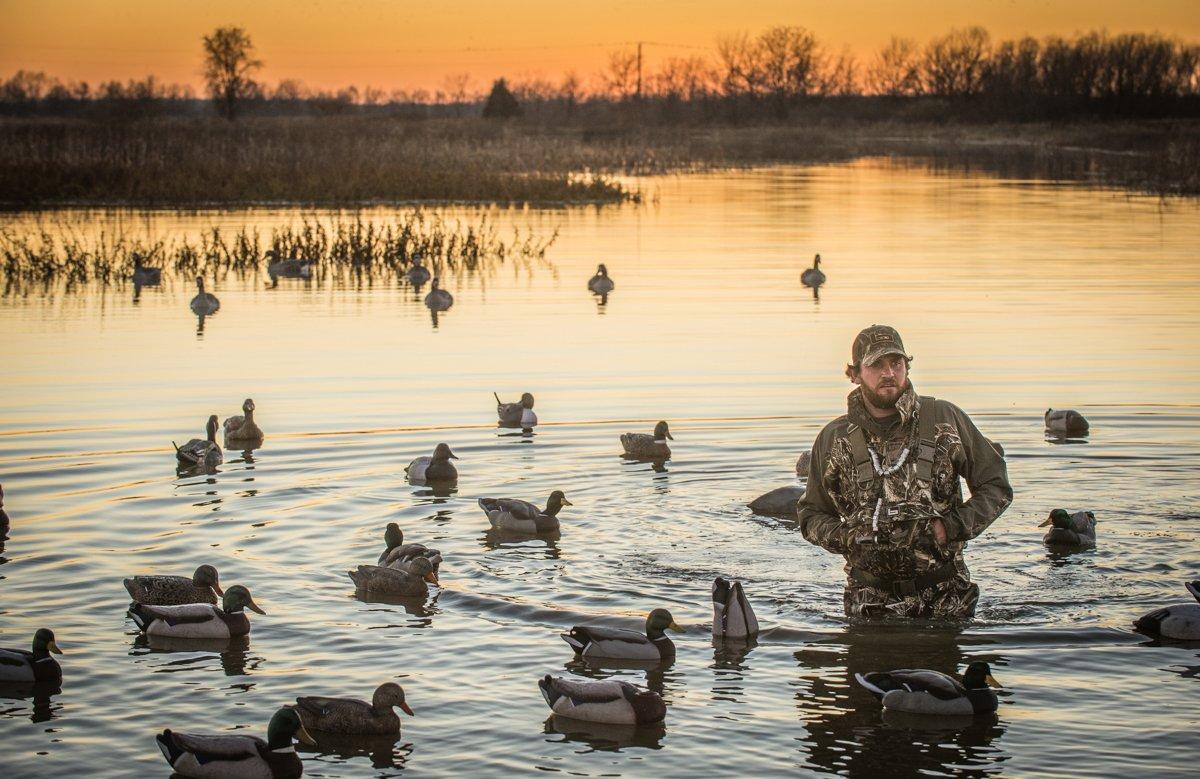Circumstances and weather can dictate success
Folks often argue about the best times to hunt ducks and geese. That's pointless if you're on a schedule. Go whenever you can — period.
If you're not crunched for time, though, you might wonder whether it's best to hunt mornings or evenings. Or even midday. Each has benefits depending on the situation or species you're pursuing. Every year, I experience excellent morning, midday and evening shoots. Conversely, I usually grind through some clunkers during those same periods. Let's examine the pros and cons of various times of day.
Mornings
Pros: This is the classic time to chase ducks and geese. Ducks are typically active right before legal shooting hours and for an hour or two — maybe longer, depending on the weather — afterward. Geese are relatively late risers but almost always leave their roosts and hit ag fields to feed right around sunup. The weather is typically cool or cold, and unless you have to be to work by 8 a.m., time constraints won't slow you down. Did you set up 100 yards from the hot hole? Pick up and move there. You'll still have time.
Cons: Sometimes, light winds dominate early mornings, and the breeze doesn't pick up until midmorning or later. In many situations, especially big water, that can limit early bird movement. Also, the brilliant morning sun can hinder your vision. And let's face it, getting up at 3 a.m. day after day can crush your soul and strain your home life.
Evenings
Pros: Temperatures typically cool an hour or two before sunset, and puddlers and geese usually hit fields again to feed. In water-hunting scenarios, ducks and geese often move well the hour before dark to find roosting areas. If you're in a hot area — say a timber-lined wood duck hole, for example — you can limit quickly. Better, you'll be well-rested.
Cons: Evening hunts can be brief, especially if it's warm. Often, birds won't stir until right before shooting hours end, and your only opportunities might come with just minutes left. If you're not on the X right away, you usually don't have time to move.
Midday
Pros: This is the perfect time for jump-shooting loafing wood ducks and mallards from small creeks or ponds. Also, you might catch geese on small waters between feeding flights. Also, some divers don't start to fly well until midmorning, when winds whip across large waters, prompting ducks to seek food and lee shorelines. Further, approaching cold fronts or other changing weather can prompt excellent midday duck and goose movement.
Cons: Without ideal weather, you're pretty much confined to jump-shooting. Hunting over decoys in a warm, calm marsh is slightly more productive than watching paint dry.
Conclusion
Unless conditions dictate otherwise, I hunt mornings. Ducks and geese are more consistently active then than during evenings or certainly midday. Plus, as mentioned, I usually have time to move or tweak my setup. And if the flight is good, I might have the opportunity to shoot a limit. Further, if I strike out but have no commitments, I can always try something else at midday or during the evening.
Evenings can produce stunning action, and midmorning creek floats or big-water diver hunts with weather afoot can be memorable. But for day-after-day action throughout the season, mornings get my vote.
Hey, you can always sleep after the season.
Click here for more Realtree waterfowl hunting content. And check us out on Facebook.







